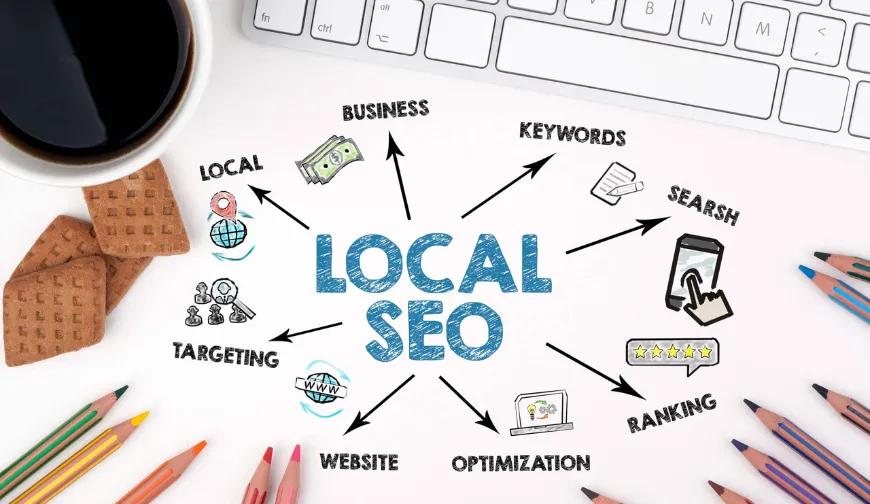Off-page SEO is a crucial aspect of search engine optimization that focuses on activities outside your website to improve your search engine rankings. Building high-quality backlinks is a fundamental component of off-page SEO, as it signals to search engines that your site is credible and authoritative. In this article, we will explore effective off-page SEO strategies to build high-quality backlinks and boost your website’s visibility.
What is Off-Page SEO?
Off-page SEO involves optimizing factors outside your website to improve your search engine rankings. This includes activities such as link building, social media marketing, and influencer outreach. The primary goal of off-page SEO is to build a strong backlink profile that enhances your website’s authority and trustworthiness.
Why is Off-Page SEO Important?
1. Enhances Domain Authority
High-quality backlinks from reputable websites can significantly boost your domain authority. Search engines view backlinks as votes of confidence, indicating that your content is valuable and trustworthy.
2. Improves Search Engine Rankings
Backlinks are one of the most important ranking factors for search engines. Websites with strong backlink profiles tend to rank higher in search engine results pages (SERPs), driving more organic traffic.
3. Increases Referral Traffic
Backlinks not only improve your search rankings but also drive referral traffic from other websites. When users click on backlinks pointing to your site, they are directed to your content, increasing your overall traffic.
4. Builds Brand Awareness
Being featured on reputable websites through backlinks can enhance your brand’s visibility and reputation. This helps in building brand awareness and establishing your business as an authority in your industry.
Effective Off-Page SEO Strategies
1. Guest Posting
Guest posting involves writing articles for other websites in your industry. It is a powerful way to build high-quality backlinks and establish yourself as an authority. To implement an effective guest posting strategy:
- Identify Relevant Websites: Find reputable websites in your industry that accept guest posts.
- Create High-Quality Content: Write valuable and informative articles that provide real value to the readers.
- Include Authoritative Links: Incorporate links to your website naturally within the content.
- Build Relationships: Network with site owners and editors to increase your chances of getting published.
2. Broken Link Building
Broken link building involves finding broken links on other websites and suggesting your content as a replacement. This helps website owners fix broken links while earning you a valuable backlink. To execute this strategy:
- Identify Broken Links: Use tools like Ahrefs or Screaming Frog to find broken links on relevant websites.
- Create Replacement Content: Ensure you have high-quality content that can replace the broken links.
- Reach Out to Website Owners: Contact the site owners, inform them of the broken link, and suggest your content as a replacement.
3. Skyscraper Technique
The Skyscraper Technique involves finding high-performing content in your industry, creating a better version, and reaching out to those who linked to the original content. This strategy helps you build high-quality backlinks by providing superior content. To use the Skyscraper Technique:
- Find Popular Content: Identify content in your industry that has gained a lot of backlinks.
- Create Superior Content: Develop a more comprehensive, updated, and valuable version of the content.
- Promote Your Content: Reach out to websites that linked to the original content and suggest your improved version as a replacement.
4. Influencer Outreach
Influencer outreach involves collaborating with influencers in your industry to gain backlinks and exposure. Influencers have a large following and can help promote your content. To leverage influencer outreach:
- Identify Relevant Influencers: Find influencers in your industry who have a strong online presence.
- Build Relationships: Engage with influencers on social media and establish a relationship.
- Collaborate on Content: Work with influencers to create content that they can share with their audience, linking back to your site.
5. Content Marketing
Content marketing involves creating and promoting valuable content to attract and engage your target audience. High-quality content naturally earns backlinks from other websites. Effective content marketing strategies include:
- Blogging: Regularly publish informative and engaging blog posts on your website.
- Infographics: Create visually appealing infographics that present data and information in an easy-to-understand format.
- Videos: Produce high-quality videos that provide value to your audience and encourage shares.
- E-books and Whitepapers: Develop comprehensive guides and resources that can be linked to by other websites.
6. Social Media Marketing
Social media marketing involves promoting your content on social media platforms to increase visibility and attract backlinks. While social media links do not directly impact SEO, they can drive traffic and exposure, leading to more backlinks. To utilize social media marketing:
- Share Content Regularly: Post your content on social media platforms to reach a wider audience.
- Engage with Followers: Interact with your followers and encourage them to share your content.
- Use Hashtags: Incorporate relevant hashtags to increase the visibility of your posts.
- Collaborate with Influencers: Partner with social media influencers to promote your content.
7. Forum Participation
Participating in industry-related forums and communities can help you build backlinks and establish authority. To effectively use forum participation:
- Join Relevant Forums: Find forums and online communities related to your industry.
- Provide Value: Contribute valuable insights and answer questions to establish yourself as an authority.
- Include Links Naturally: Include links to your content when relevant, ensuring it provides value to the discussion.
8. Local SEO and Citations
Local SEO focuses on optimizing your online presence for local searches. Building local citations on business directories and local websites can enhance your local SEO efforts. To improve local SEO:
- List Your Business in Directories: Submit your business information to local directories such as Google My Business, Yelp, and Bing Places.
- Ensure NAP Consistency: Ensure your business name, address, and phone number (NAP) are consistent across all listings.
- Encourage Local Reviews: Ask satisfied customers to leave reviews on local review sites.
Monitoring and Adjusting Your Off-Page SEO Strategy
1. Track Your Backlink Profile
Use tools like Ahrefs, Moz, or SEMrush to monitor your backlink profile. Track the number of backlinks, referring domains, and the quality of the links pointing to your site.
2. Analyze Your Competitors
Analyze your competitors’ backlink profiles to identify new opportunities. Find out where they are getting their backlinks and try to replicate their successful strategies.
3. Adjust Your Strategy Based on Results
Regularly review your off-page SEO performance and adjust your strategy based on your findings. If certain tactics are not yielding results, try new approaches and continually refine your strategy.
Conclusion
Building high-quality backlinks is a vital component of off-page SEO that can significantly enhance your website’s visibility and search engine rankings. By implementing effective off-page SEO strategies such as guest posting, broken link building, the Skyscraper Technique, influencer outreach, content marketing, social media marketing, forum participation, and local SEO, Keyword.cat can help you build a strong backlink profile and drive more organic traffic to your site. Stay committed to monitoring and adjusting your strategy to ensure long-term success in the competitive digital landscape.




